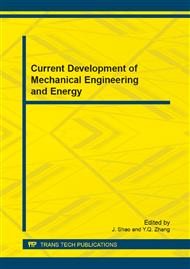p.1602
p.1606
p.1611
p.1615
p.1619
p.1623
p.1627
p.1631
p.1636
Specific Risks Assessment of Resource-Based Urban Power Network Planning
Abstract:
Western resource-based city (WRC) develops rapidly under the develop-the-west and energy resource development strategy. Both of the economy growth and the resource exploitation will make greater demands on the science of power network planning. Therefore, urban power network planning will face more specific risks. Based on fuzzy membership theory, this paper studies the risk identification of WRC power network planning, and summarizes the key risks. Finally, we identify the risks from aspects of policy, economy, environment and load systematically, establish an evaluation index system of specific risks of WRC power network planning, and provide fundamental decisions for risk aversion of WRC power network.
Info:
Periodical:
Pages:
1619-1622
Citation:
Online since:
February 2014
Authors:
Price:
Сopyright:
© 2014 Trans Tech Publications Ltd. All Rights Reserved
Share:
Citation:


